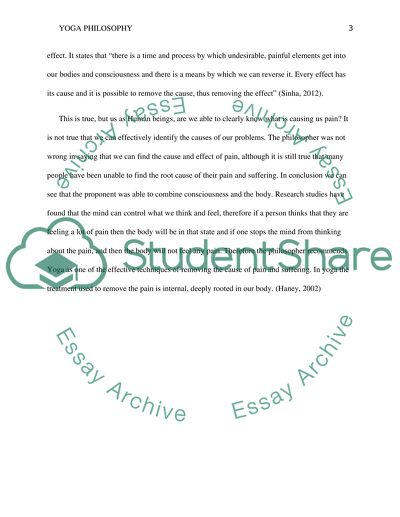The concept of freedom in Yoga philosophy Essay Example | Topics and Well Written Essays - 500 words. Retrieved from https://studentshare.org/philosophy/1630632-the-concept-of-freedom-in-yoga-philosophy
The Concept of Freedom in Yoga Philosophy Essay Example | Topics and Well Written Essays - 500 Words. https://studentshare.org/philosophy/1630632-the-concept-of-freedom-in-yoga-philosophy.


